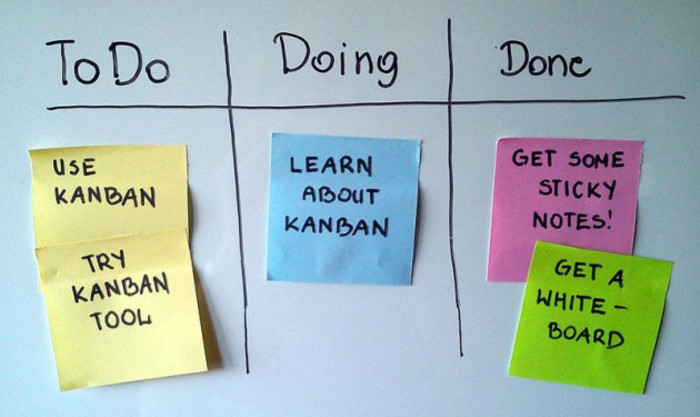'Startups think they're smart because of their ideas. The value is in making them reality'
The creator of Kanban explains how to avoid the common traps teams fall into.
VALUING IDEAS OVER results and misusing ‘stretch goals’ are two big issues creeping into business teams, according to Kanban founder David Anderson.
Kanban is a task-management system that has become a mainstay with IT teams across the world. A recent survey showed nearly 2 out of 5 tech teams use the method to organise tasks.
The method is used to help people see the bigger picture of a project they are working on and bring a level of transparency to what each member is doing.
Speaking to Fora during a visit to Dublin, the Seattle-based Anderson used a very basic example to explain what makes Kanban so effective despite its simplicity.
“If you’re a barista and you had a machine with three filters on it, you wouldn’t try and make five cups of coffee. A Kanban board represents the number of virtual filters on an espresso machine and stops the workload from becoming burdensome,” he said.
When he first applied the method in 2000 at a US phone company called Sprint, he managed to cut the time from concept to execution for all projects by 97%.
Kanban boards are also frequently used by companies in the high-paced betting industry, according to Anderson. At Paddy Power, the lead time for engineering projects has been cut from 90 days to just three since the boards were introduced to track workflow.

These are Anderson’s thoughts on how best to improve productivity and get results:
Don’t be afraid to cull your to-do list
“Someone might say they have Jira (a virtual Kanban board) and I might ask ‘how old are some of the tasks on it?’ Sometimes they are years old.
“Then I ask them, ‘How old would these tasks have to be for you to consider that they are never going to get done?’ They might tell me six months and then we filter their backlog of tasks to show the ones from the last six months and close anything outside that.
“The theory here is that every task requested has a ‘mother’. Somebody thought that idea up. Well, if you kill the idea because it’s two months old and you haven’t started it yet, if its mother cares the ticket will be resubmitted. And if the mother doesn’t care and has moved on to something else, it doesn’t come back again.”
Ensure stretch goals don’t make you miserable
“My daughter is a gymnast and the coaches have to teach these eight-year-olds how to turn a cartwheel on a four-inch-high beam. Naturally it is terrifying for them, but for the coach to get them to even try the cartwheel, they have to make the children uncomfortable.
“If a coach pushes them too hard though, the kid will say it doesn’t like gymnastics and then the coach has broken them; whereas if the coach creates just enough stress, it pushes the child out of their comfort zone. Then they will try and then they learn it’s possible.
“I’d like senior executives to see themselves as coaches for their business and understand if they want to push the performance of the organisation, the business needs to be stressed just enough that people can rise to the challenge.
“Executives need to be aware if they are stressing the business too much and whether the staff even have a clue how to get where they are being asked to go. If the answer is no, they will set people up for failure and ultimately everyone is miserable.”
 A more detailed example of a Kanban board.
A more detailed example of a Kanban board.
Don’t reward ideas, reward perseverance
“The startup community suffer from this. They think they are so smart because they came up with some innovation, but really the value is turning the idea into reality. It’s the 99% perspiration, not the 1% inspiration.
“Startups are being trained to be experimental, but we haven’t quite kicked them out of the ideas (are everything) notion.
“Some people criticise the lean startup movement for killing ideas too quickly and for celebrating failure too much, when actually some of the world’s best companies are very good at nurturing what initially seem like bad ideas.
“Pixar is a classic example. Some of its best movies came from ideas that everyone thought were stinkers. Internally they referred to them as the ugly ducklings, but some of them turned into massive hits. It just took someone to stand by them for years.”





